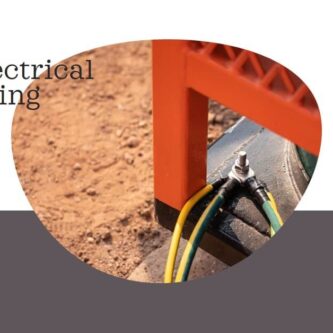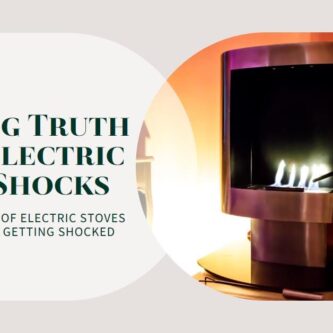Have you ever spilled water on your electric stove and wondered if it’s safe to continue using it? Water coming in contact with an electric stove can be dangerous and cause damage to the appliance.
In this article, we’ll explore what happens when water meets an electric stove, how to prevent water from coming into contact with it, and what to do if water does spill onto the stove.
Understanding How Electric Stoves Work
Before we dive into the dangers of water on an electric stove, it’s important to understand how the appliance works.
An electric stove consists of several components that work together to create heat. The stove’s heating element, which is typically made of metal, is responsible for generating heat when an electric current passes through it.
The heating element is enclosed in a coil or a smooth, flat surface made of ceramic glass. When you turn on an electric stove, the heating element is activated, and it begins to heat up.
The heat generated by the element is transferred to the cookware placed on top of it. The amount of heat generated by the heating element can be controlled by adjusting the temperature setting on the stove.
Dangers of Water on an Electric Stove
Water coming into contact with an electric stove can pose several dangers, including electrical shock, fire, and health hazards.
Electrical Shock Hazards
Water is an excellent conductor of electricity, which means that if water comes in contact with an electric stove while it’s turned on, it can cause an electrical shock.
An electrical shock can cause serious injury or even death. Therefore, it’s important to take immediate action if water spills onto the stove while it’s turned on.
Fire Hazards
Water on an electric stove can also cause a fire. When water comes in contact with a heating element, it can cause the element to crack or shatter, which can result in a short circuit or an electrical fire.
Additionally, if water comes into contact with hot coils, it can cause steam to rise, which can result in a fire if it comes in contact with flammable materials.
Health Risks
Associated with Inhaling Smoke or Fumes If water comes into contact with hot coils, it can cause smoke or fumes to rise.
Inhaling smoke or fumes can be hazardous to your health and can cause respiratory problems, headaches, or nausea.
Immediate Steps to Take if Water Spills on an Electric Stove
If water spills onto your electric stove, the first thing you should do is turn off the stove.
Turning off the stove will prevent any further electrical current from flowing through the heating element.
Next, you should take safety precautions, such as wearing gloves and turning off the circuit breaker to the stove.
Once you have taken safety precautions, you can begin cleaning up the water and residue. Use a dry cloth or paper towel to wipe away any excess water.
Be careful not to touch the heating element or any other hot surfaces. If any water has seeped into the stove, you should wait until it has completely dried before using the stove again.
Long-Term Damage and Repair
If water comes into contact with an electric stove, it can cause long-term damage to the appliance.
The severity of the damage will depend on several factors, such as the amount of water that came into contact with the stove, how long the water was in contact with the stove, and the stove’s age and condition.
Possible damages to the stove include corrosion, rust, and damage to the heating element or other electrical components.
In some cases, the stove may need to be replaced if the damage is severe.
Tips to Prevent Water from Coming in Contact with an Electric Stove
Preventing water from coming into contact with an electric stove is the best way to avoid potential hazards and damages.
Here are some tips to help prevent water spills:
- Use appropriate cookware: Use cookware that is the right size for the heating element. Avoid using pots or pans with uneven bottoms, as they can cause spills.
- Avoid spills: Be mindful of your movements in the kitchen and avoid bumping into the stove. Also, be careful when pouring liquids or transferring food from one pot to another.
- Regular maintenance: Regularly clean your stove to ensure that it’s free of dirt and debris. Also, inspect the heating element for any signs of wear and tear.
- Adding a GFCI: Yes, absolutely! Adding a GFCI (Ground Fault Circuit Interrupter) to your electric stove can provide an extra layer of protection against electric shock in case of water spills or other electrical faults. It is recommended to have GFCI outlets installed in areas where water is present, such as the kitchen and bathroom. By installing GFCI outlets, you can reduce the risk of electric shock and ensure that your electric stove and other appliances remain safe to use.
Conclusion
| Effect of Water on Stove | Precautions/Protection |
|---|---|
| Can cause electric shock and potentially lead to injury or death | Install GFCI outlets and use appropriate cookware |
| Can damage heating element, controls, and other electrical components | Unplug the stove immediately and let it dry thoroughly |
| Can cause short-circuiting, tripping circuit breakers, or even fire | Use a dry cloth to wipe the stove and avoid pouring water or cleaning solutions directly on the surface |
In conclusion, water coming in contact with an electric stove can be dangerous and cause long-term damage to the appliance.
It’s important to take immediate action if water spills onto the stove and to take safety precautions when cleaning up the spill.
Preventing water from coming into contact with the stove is the best way to avoid any potential hazards and damages.
By following the tips outlined in this article, you can keep your electric stove safe and functioning properly.


